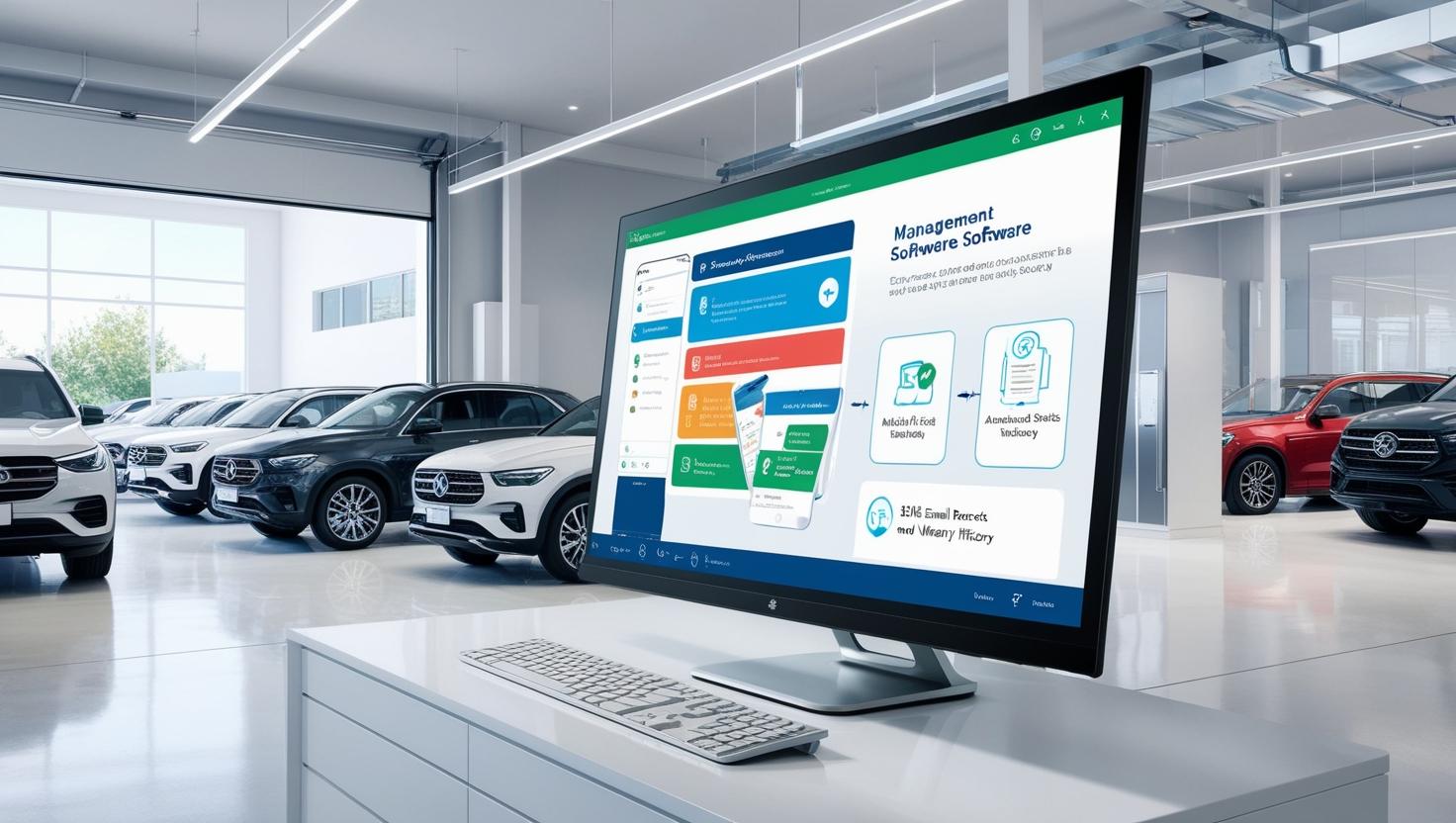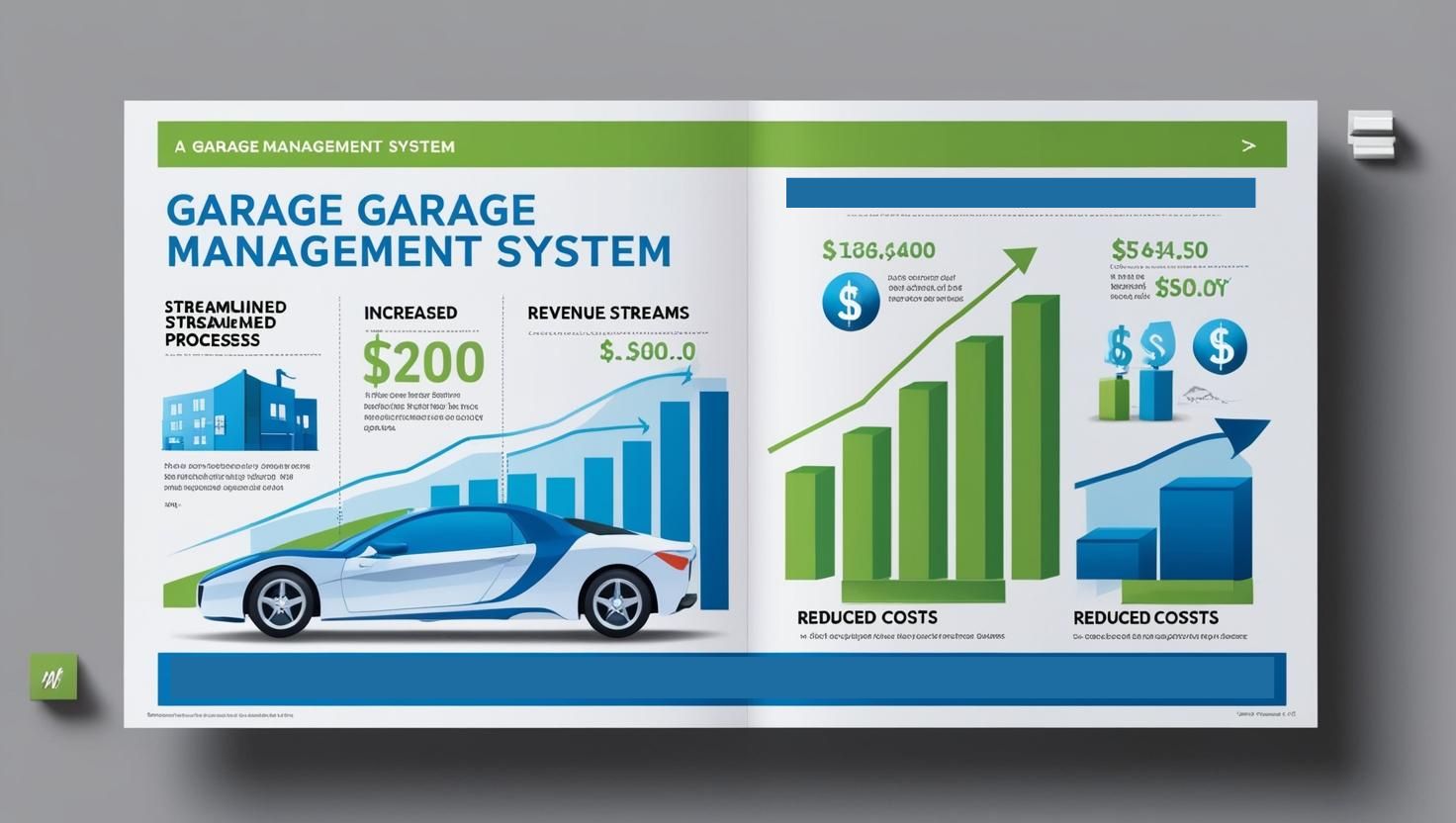In the ever-evolving automotive
industry, efficiency, accuracy, and customer satisfaction are paramount.
As we move deeper into 2025, the adoption of technology in auto repair shops is
no longer optional—it’s essential.
A Garage Management System
(GMS) is no longer a luxury for large franchises; it is a vital tool
for garages of all sizes looking to remain competitive, productive, and
profitable.
What
is a Garage Management System?
A Garage Management System is
a specialized software solution designed to streamline the operations of an
auto repair workshop. From appointment scheduling, inventory
tracking, and billing, to customer relationship management (CRM)
and real-time reporting, a GMS offers a centralized digital platform to
handle every aspect of garage operations with minimal manual intervention.
The Key Benefits of Implementing a Garage
Management System in 2025

1.
Streamlined Appointment Scheduling and Job Allocation
Modern customers expect quick
service and efficient communication. A GMS allows garages to:
- Accept online bookings 24/7.
- Auto-assign mechanics based on availability and
expertise.
- Avoid overlapping schedules and manage workload
distribution efficiently.
This enhances customer
satisfaction and ensures optimal resource utilization.
2.
Real-Time Inventory Management
Tracking spare parts and consumables
manually can lead to stockouts, overordering, and losses.
A GMS provides:
- Automated inventory tracking with alerts for low stock.
- Supplier integration for quick reordering.
- Real-time inventory status visible across all service bays.
In 2025, this feature alone can save
garages thousands in operational costs annually.
3.
Enhanced Customer Relationship Management (CRM)
Repeat business is the lifeblood
of every garage. A modern GMS enables:
- Customer profiles
with service history and vehicle data.
- Automated reminders
for due services, inspections, and renewals.
- Integrated SMS and email systems for personalized
communication.
This proactive approach builds
loyalty, improves retention, and increases lifetime customer value.
4.
Digital Invoicing and Payment Processing
Say goodbye to paper trails and
missed payments. A GMS allows:
- Instant generation of branded invoices.
- Integration with POS systems and digital wallets.
- Easy application of discounts, tax calculations,
and payment tracking.
Digital invoicing also reduces
errors, enhances transparency, and accelerates cash flow.
5.
Performance Monitoring and Data-Driven Decisions
With built-in analytics and
reporting tools, garages can:
- Track key performance indicators (KPIs) such as
average repair time, revenue per technician, etc.
- Monitor technician productivity.
- Analyze customer trends and vehicle repair patterns.
Data insights allow garage owners to
make informed decisions, optimize operations, and identify growth
opportunities.
The
Competitive Edge in 2025: Why You Can't Afford to Wait
Automation
Reduces Human Error
Manual processes are prone to errors
that can lead to lost income, poor service, and reputational damage.
A GMS automates repetitive tasks, minimizing errors and freeing up
staff to focus on customer service.
Remote
Access and Cloud Capabilities
Modern Garage Management Systems are
cloud-based, meaning you can:
- Monitor your garage from anywhere, anytime.
- Ensure data security and backups.
- Enable multi-location management with a single
dashboard.
This flexibility is especially
critical in 2025’s fast-paced environment, where mobility and remote oversight
are key.
Regulatory
Compliance Made Easy
Auto repair shops face a growing
number of compliance requirements—from tax regulations to environmental
laws. A GMS helps ensure:
- Proper documentation of services.
- Accurate taxation and reporting.
- Secure storage of customer and vehicle data in
compliance with GDPR and local laws.
This protects garages from costly
fines and improves their professional credibility.
Features
Every Garage Management System Should Include in 2025
To maximize ROI, a GMS should offer
a comprehensive feature set:
- Appointment and calendar management
- Integrated CRM tools
- Multi-channel communication (SMS, Email, WhatsApp)
- Technician time tracking
- Digital inspections with image/video upload
- Mobile access for staff and customers
- Integration with accounting software (QuickBooks, Xero)
- Marketing automation for promotions and reminders
Choosing the right system means
evaluating these features and selecting one that fits your garage’s
unique needs.
How
a GMS Boosts Revenue and Reduces Costs

The implementation of a GMS offers measurable
financial benefits:
- Fewer missed appointments due to automated reminders.
- Faster billing
processes reduce turnaround times.
- Inventory optimization prevents waste and overstocking.
- Higher customer retention increases revenue over time.
In an industry where margins are
tightening, every efficiency counts.
Real-World
Success Stories
Many auto shops in 2025 have already
seen significant improvements with GMS adoption. For example:
- A mid-sized garage in Maharashtra saw a 30% increase
in revenue within 6 months of GMS implementation.
- A Pune-based multi-location chain reduced operational
errors by 70%.
- An Vehicle service center improved customer retention
by 45% through timely service reminders and personalized offers.
These results speak volumes about
the transformational power of a modern garage management system.
The
Future of Auto Shops Is Digital
Garages that embrace digital tools
today will be tomorrow’s leaders. A GMS isn’t just a tool—it’s a business
accelerator. In 2025, customers expect speed, transparency, and
professionalism. The right garage management system helps meet these
expectations while providing the tools to grow and scale your business
sustainably.